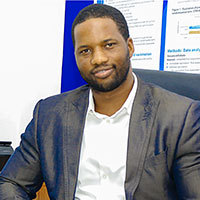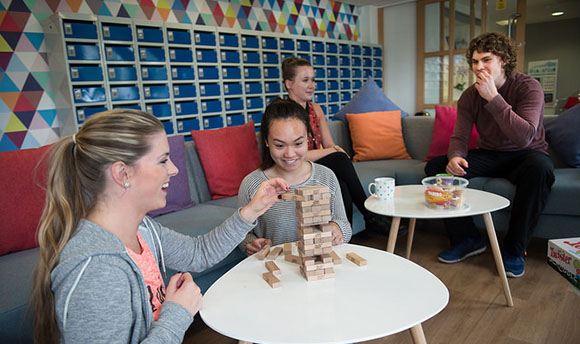Completing a PhD was a lifetime ambition of mine, as a Demonstrator and later an Associate Lecturer at the College of Medicine and Allied Health Science (COMAHS). Conducting mental health research that would inform policy and practice, I dreamt of playing my part in improving the healthcare system in my country of Sierra Leone.
Concluding my first year as doctoral student with IGHD, I have been equipped with more significant personal and professional development than I could ever have anticipated. After receiving my initial acceptance and my UK student visa, September had arrived swiftly. Arranging the move to Edinburgh and the lengthy task of finding a flat left me with very little time to explore the city, before soon beginning induction the following week.
The first day of our induction was rife with anxiety, full of anticipation of what the programme might entail. We were to meet our lecturers and fellow classmates for the first time, and would soon learn what was expected of us; being presented with a number of requirements, timelines, and a seemingly unending list of books we were suggested to read. I was admittedly a little overwhelmed at first, but soon gained confidence; through discussing any concerns that I had, engaging the support of my classmates and accessing the handy Learning Resource Centre (LRC).
Regarding the past year of work, the first couple of months were dedicated to reading, along with developing my outline proposal and learning contract, to then be submitted to the Graduate School. Three weeks of thorough lectures for all PhD students covered a range of topics. These were designed to ensure that our knowledge was up-to-date, including guidance on concept mapping, referencing and generating our research development portfolios.
These teaching weeks were extremely useful in developing a number of vital skills. We were informed on how to best plan research, how to effectively manage our time and how to communicate successfully with a range of audiences. Advice on networking, ethical and legal specificities and maximising research impact were invaluable in preparing us for the investigation to come. Overall, we were equipped with all we needed to become a proficient researcher, in line with the Vitae Researcher Development Framework.
During this time, I strived to balance my time spent on research with time that I committed to personal self-care. QMU was a lively hub for social events aimed especially at postgraduate students, and I enjoyed socialising with colleagues and attending various social functions. Considering the self-directed nature of a PhD, I committed myself to being as disciplined as possible. I found it beneficial to treat my research as a full-time job, committing to arriving at 9:00 each morning and leaving at 17:30 each night.
Throughout this first year I gained plenty of confidence, helping to increasingly refine my unique voice as a researcher. I have acquired and enhanced my organizational skills, these extending far beyond my academic work, and learnt to employ the Covey Matrix method to better prioritise my numerous tasks.
In October 2018, I accompanied my supervisor under a special invitation to attend the first Global Ministerial Mental Health Summit in London, where he was due to present. This was the most momentous moment of my academic career so far, meeting and engaging with the authors of many papers that I had studied: researchers who shape the very landscape of global health. The experience was thrilling, and I was honoured to connect with these people, understanding the vast impact that their research had upon our world.
As with any advanced programme, the first doctoral year can be tremendously challenging. However, I have found IGHD a very special context, in that it provides a nurturing yet driven environment, expertly assisting the transition of students from low academic confidence to assured self-actualisation. I can now say with certainty that I have made substantial strides in my career, and that I am encouraged by the continuous broadening of my academic capabilities.
My first year at QMU has completely exceeded my expectations. My time spent here provided me with lifelong friendships, copious new skills and the crucial self-assurance that I need as I progress in my career. I am now all set to begin my fieldwork in Sierra Leone looking at interventions to address the mental health needs of women through the period of pregnancy and childbirth.

Abdulai Jawo Bah is an NIHR doctoral research trainee with the Research Unit of Health in Situations of Fragility







